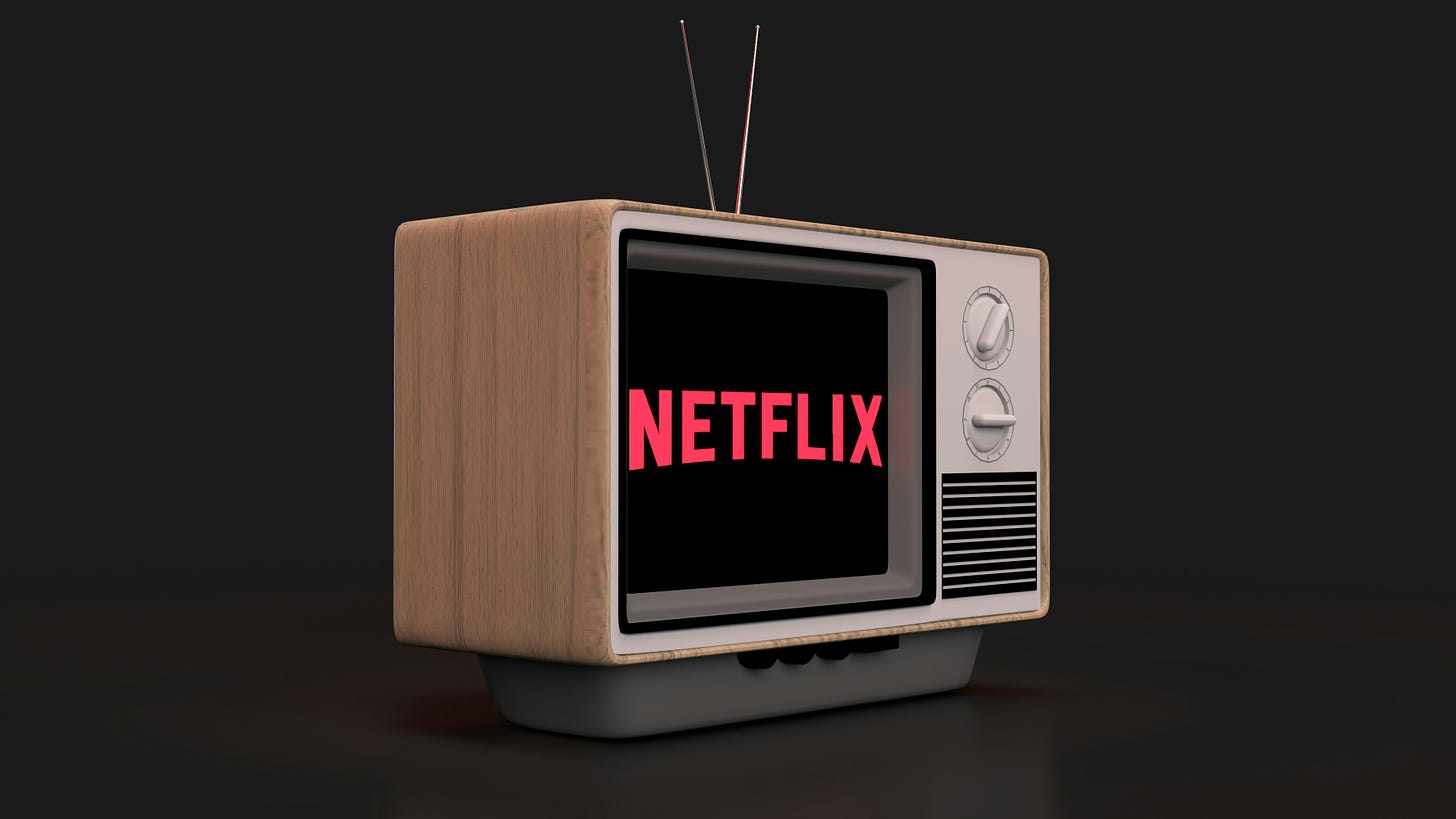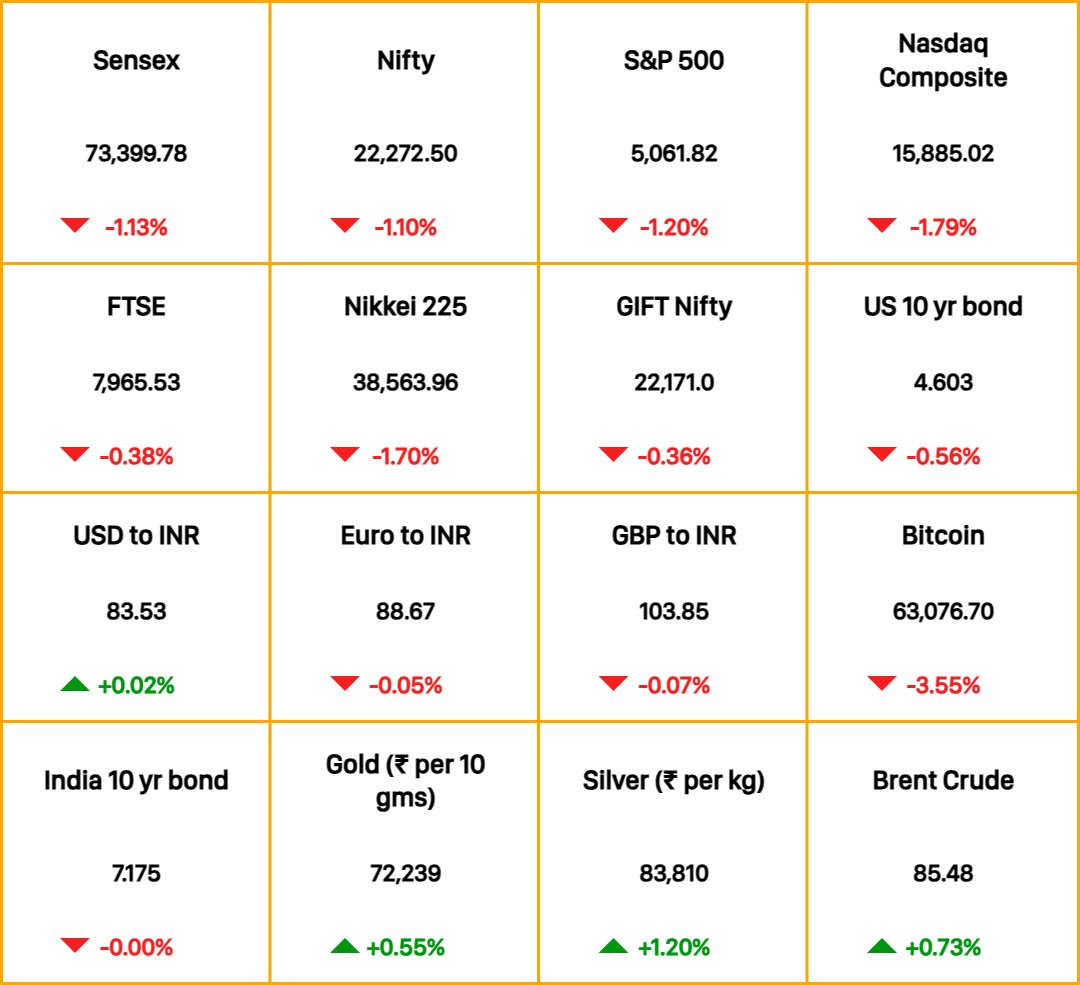Netflix enters its broke girl era
Also in today’s edition: Car subscriptions are here, but who’s biting?; Aluminium shower
Good morning! The musical instrument synonymous with Maharashtra has become a victim of its own popularity. Ever since the Sharad Pawar faction of the NCP [NCP (SP)] finalised ‘man blowing tutari’ as its election symbol—no thanks to the Election Commission assigning NCP’s original symbol, the clock, to Ajit Pawar’s faction—tutari players in the state aren’t being invited to political events like they used to be, The Indian Express reports. Restricted to performing either at NCP (SP) rallies or ceremonial occasions, players of the curved trumpet-like instrument are earning Rs 2,000-Rs 3,500 for an hour or two. Some are even branching into other livelihoods such as selling dry fruits. If you ask us, parties blackballing a musical instrument just because it’s co-opted by a rival is indubitably stupid. By that token, everything from the cycle to the jhaadu should’ve received the same treatment.
🎧 How the Iran-Israel escalation effects India. Also in today’s episode: how Vice India imploded. Tune in on Spotify, Apple Podcasts, Amazon Music, Google Podcasts, or wherever you get your podcasts.
Jessica Jani, Dinesh Narayanan, and Roshni Nair also contributed to today’s edition.
The Market Signal*
Stocks & Economy: Top US banks—JPMorgan Chase, Goldman Sachs, and Citigroup—minted money as dealmaking and bond sales picked up. The first quarter profits of the banks were up as underwriting fees and deal commissions flowed in. The trend is expected to continue in the rest of the year.
India has good weather news. After private forecaster Skymet predicted a normal monsoon this year, the India Meteorological Department said that El Nino conditions are easing and the country can expect abundant rains. The monsoon is the single biggest factor impacting the Indian economy.
Asian shares slipped in morning trade, tracking US equities, which fell as Federal Reserve rate cut hopes receded. China’s GDP grew at 5.3% in January-March, higher than anticipated.
Indian equity indices are likely to trend lower as oil prices head up on the West Asian conflict intensifying. The GIFT Nifty indicates a weak opening.
AUTO
No Like, No Subscribe
The subscription economy is coming for cars. Or vice versa. Car subscriptions, which include accessing a car by paying a monthly fee, usually for 2-4 years, rather than buying it, is gaining traction globally. Per estimates, car subscriptions could make up 57% of the Europe market and 38% of the US market by 2035.
In India too, leading car manufacturers like Maruti, Hyundai, and Mahindra & Mahindra started exploring the space during and after the pandemic. It was pegged to see good demand post-Covid. After all, it’s affordable, flexible, and doesn’t involve hefty down payments. But it hasn’t had many takers yet. Despite optimism, car subscriptions have barely scratched 1% of the Indian market so far.
In fact, Hyundai Motor India, which was one of the first OEMs to get into the subscription space in 2019, no longer offers the model. What’s stopping Indians from hitting subscribe? Read in The Core’s report.
PODCAST
Tune in every Monday to Friday as financial journalist and host Govindraj Ethiraj gives you the most important take on the latest in business and economy.
Today, he speaks to Business Standard editorial director and columnist Ashok K Bhattacharya on the surprising truths about the BJP and Congress manifestos.
COMMODITIES
Dull Metal Shines Bright
Beer may cost more, unless it’s the tap.
The US and the UK banned deliveries of metals such as aluminium, copper, and nickel from Russia from last Friday. Russia supplies about 5% of the world’s aluminium, 6% of nickel, and 4% of copper. Aluminium prices shot up 9.4% immediately.
Beer, food, and cola cans are made of the dull-white metal. Even milk cartons are lined with it. About 30% of metal used in electric cars and entire aeroplane shells are aluminium. It’s a popular metal in the construction sector too.
Somebody has to foot the higher bill and it’s unlikely to be the producers. What we’re trying to say is canned stuff might become expensive. Producers will enjoy a bonanza. That is why aluminium maker Hindalco’s shares rose 2.4% today despite the broad market falling. Its US arm Novelis is a world leader in recycled and rolled aluminium.
ENTERTAINMENT
Beer Taste, Beer Budgets

In 2017, no one thought of Netflix as the home of cinema. That changed when Universal Pictures’ executive Scott Stuber joined the platform as its head of films and lavished money on top talent such as Martin Scorcese and Alfonso Cuaron to make Oscar favourite films.
The extravaganza is over.
Netflix has replaced Stuber with ex-Warner Bros exec Dan Lin, who promptly cut jobs and content slates at the film division, The New York Times reports. Netflix now wants to tightly control the stories of the films it commissions and produce more diverse films across budgets. This may end the parade of so-called genius filmmakers who are used to near-unlimited budgets and creative freedom.
The Signal
Streaming platforms burnt good money competing with Hollywood for credibility as producers of prestige cinema. But leaders like Netflix and Disney+ are now introducing ad-tiers under pressure to turn their business profitable. Big-budget films with little creative control can no longer be on the menu.
In India, too, platforms are cutting budgets and insisting on a theatrical run for films before acquiring them for a streaming release. Besides, ongoing mergers and acquisitions activity has reduced filmmakers’ options and bargaining power.
FYI
One part at a time: Apple is reportedly in talks with the Chennai-based Murugappa Group and the Tatas to produce camera modules for iPhones as it moves more links of its supply chain to India.
Pink slips: Tesla is laying off over 10% of its global workforce in the face of falling sales and increased EV competition, Reuters reports.
In the bag: Cipla Health Limited, the consumer healthcare arm of pharma giant Cipla, is acquiring Ivia Beaute’s cosmetics and personal care brands (Bhimsaini, Astaberry, Ikin) for Rs 130 crore.
Fresh blood: Singapore PM Lee Hsien Loong, who led the country for 20 years, is stepping down on May 15. Deputy PM Lawrence Wong will be the new premier of the island nation.
Captain Cool in the investors’ pool: Former Indian cricket captain MS Dhoni has invested an undisclosed sum in e-cycle startup EMotorad.
THE DAILY DIGIT
17,000+
The number of EV chargers Amazon has installed across its 120 warehouses in the US, making it the largest private EV charging operator in the country. (Bloomberg)
FWIW
The chosen one: Just over 40 years ago to the day, Rakesh Sharma became the first Indian to go to space. Now, Gopichand Thotakura is following in his footsteps. An aeronautical engineer by training and a trained pilot, he also owns a wellness business in Atlanta, US. Thotakura will be one of six crew members on Blue Origin’s NS-25 mission. How he got shortlisted when millionaires, even billionaires, are queuing up to become space tourists is somewhat of a mystery. All Thotakura revealed is that the pitch he made—"to provide the possibility for an Indian to dream”—won the folks over at Jeff Bezos’ space company. As for how much it cost for India’s first-ever space tourist to get a seat on Blue Origin: that’s an even bigger mystery, since Thotakura is under an NDA.







